
Vittoria Colonna, marchioness of Pescara, was an Italian noblewoman and poet. As an educated, married noblewoman whose husband was in captivity, Colonna was able to develop relationships within the intellectual circles of Ischia and Naples. Her early poetry began to attract attention in the late 1510s and she ultimately became one of the most popular female poets of 16th-century Italy. Upon the early death of her husband, she took refuge at a convent in Rome. She remained a laywoman but experienced a strong spiritual renewal and remained devoutly religious for the rest of her life. Colonna is also known to have been a muse to Michelangelo Buonarroti, himself a poet.

Doña Inés de Asbaje y Ramírez de Santillana, better known as Sor Juana Inés de la Cruz was a Mexican writer, philosopher, composer and poet of the Baroque period, and Hieronymite nun. Her merit as a true master of the Spanish Golden Age gained her the nicknames of "The Tenth Muse" or "The Phoenix of America", for she was probably the most accomplished author of the entire history of the Spanish Americas, and a flame that rose from the ashes of "religious authoritarianism".
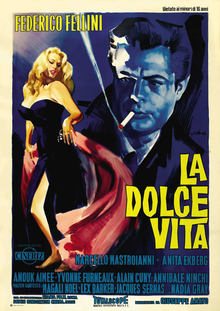
La Dolce Vita is a 1960 satirical comedy-drama film directed and co-written by Federico Fellini. The film stars Marcello Mastroianni as Marcello Rubini, a tabloid journalist who, over seven days and nights, journeys through the "sweet life" of Rome in a fruitless search for love and happiness. The screenplay, written by Fellini and three other screenwriters, can be divided into a prologue, seven major episodes interrupted by an intermezzo, and an epilogue, according to the most common interpretation.
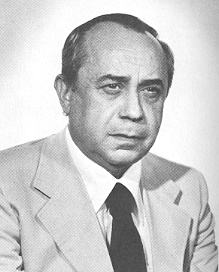
Leonardo Sciascia was an Italian writer, novelist, essayist, playwright, and politician. Some of his works have been made into films, including Porte Aperte, Cadaveri Eccellenti, Todo Modo and Il giorno della civetta.
Barry Ernest Fantoni is a British author, cartoonist and jazz musician of Italian and Jewish descent, most famous for his work with the magazine Private Eye, for whom he also created Neasden F.C. He has also published books on Chinese astrology as well as a mystery novel set in Miami featuring 88-year-old private investigator Harry Lipkin.

Catherine of Bologna [Caterina de' Vigri] was an Italian Poor Clare nun, writer, teacher, mystic, artist, and saint. The patron saint of artists and against temptations, Catherine de' Vigri was venerated for nearly three centuries in her native Bologna before being formally canonized in 1712 by Pope Clement XI. Her feast day is 9 March.

Ennio Flaiano was an Italian screenwriter, playwright, novelist, journalist, and drama critic. Best known for his work with Federico Fellini, Flaiano co-wrote ten screenplays with the Italian director, including La Strada (1954), La Dolce Vita (1960), and 8½.
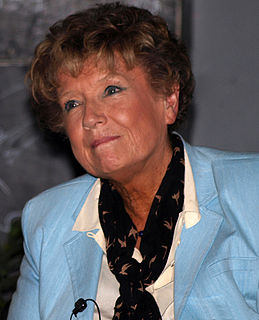
Dacia Maraini is an Italian writer. Maraini's work focuses on women's issues, and she has written numerous plays and novels. She has won awards for her work, including the Formentor Prize for L'età del malessere (1963); the Premio Fregene for Isolina (1985); the Premio Campiello and Book of the Year Award for La lunga vita di Marianna Ucrìa (1990); and the Premio Strega for Buio (1999). In 2013, Irish Braschi's biographical documentary I Was Born Travelling told the story of her life, focusing in particular on her imprisonment in a concentration camp in Japan during World War II and the journeys she made around the world with her partner Alberto Moravia and close friends Pier Paolo Pasolini and Maria Callas.

Giuseppina Ronzi de Begnis was an Italian soprano opera singer famous for the roles written for her by the prominent composers of the 1820s and 1830s. Her father, Gaspare, was a prominent ballet dancer and choreographer, and her mother, Antonia, a ballerina. Her brothers Stanislao and Pollione were opera singers. As a singer, she made her debut in Naples at the Teatro dei Fiorentini in 1814 in Giovanni Cordella's L'Avaro, followed by important engagements in Bologna in 1816, also appearing in Genoa, Florence; in 1817 as Giulia La Vestale, and in Bergamo. She married Italian bass Giuseppe de Begnis (1793–1849) when she was only 16. The marriage lasted only a few years and the two separated in 1825.

Sergio Fantoni was an Italian actor, voice actor and director.
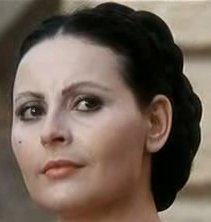
Angela Luce is an Italian film actress and singer of Neapolitan song. She has appeared in 80 films since 1958. She was born in Naples, Italy.

Cameriera bella presenza offresi... (Housemaid) is a 1951 Italian film directed by Giorgio Pastina. Federico Fellini was one of its scriptwriters. The film marked the comeback of Elsa Merlini after a nine years hiatus.

Nella città l'inferno is a 1959 Italian film directed by Renato Castellani.

La Vita di Leonardo Da Vinci — in English, The Life of Leonardo da Vinci — is a 1971 Italian television miniseries dramatizing the life of the Italian Renaissance genius Leonardo da Vinci (1452–1519).

Alda Merini was an Italian writer and poet. Her work earned the attention and the admiration of other Italian writers, such as Giorgio Manganelli, Salvatore Quasimodo, and Pier Paolo Pasolini.

The Mighty Crusaders is a 1957 film about the First Crusade (1096–1099), based on the 16th-century Italian poem Jerusalem Delivered by Torquato Tasso.
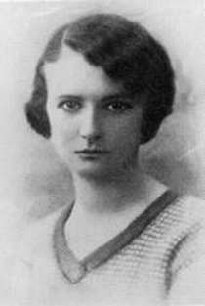
Antonia Pozzi was an Italian poet.
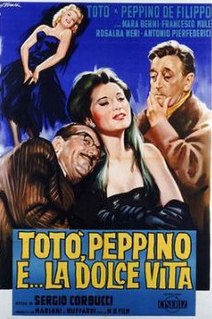
Totò, Peppino e...la dolce vita is a 1961 Italian comedy film directed by Sergio Corbucci.
The list of the 100 Italian films to be saved was created with the aim to report "100 films that have changed the collective memory of the country between 1942 and 1978".
This is a list of Italian television related events of 1973.

















